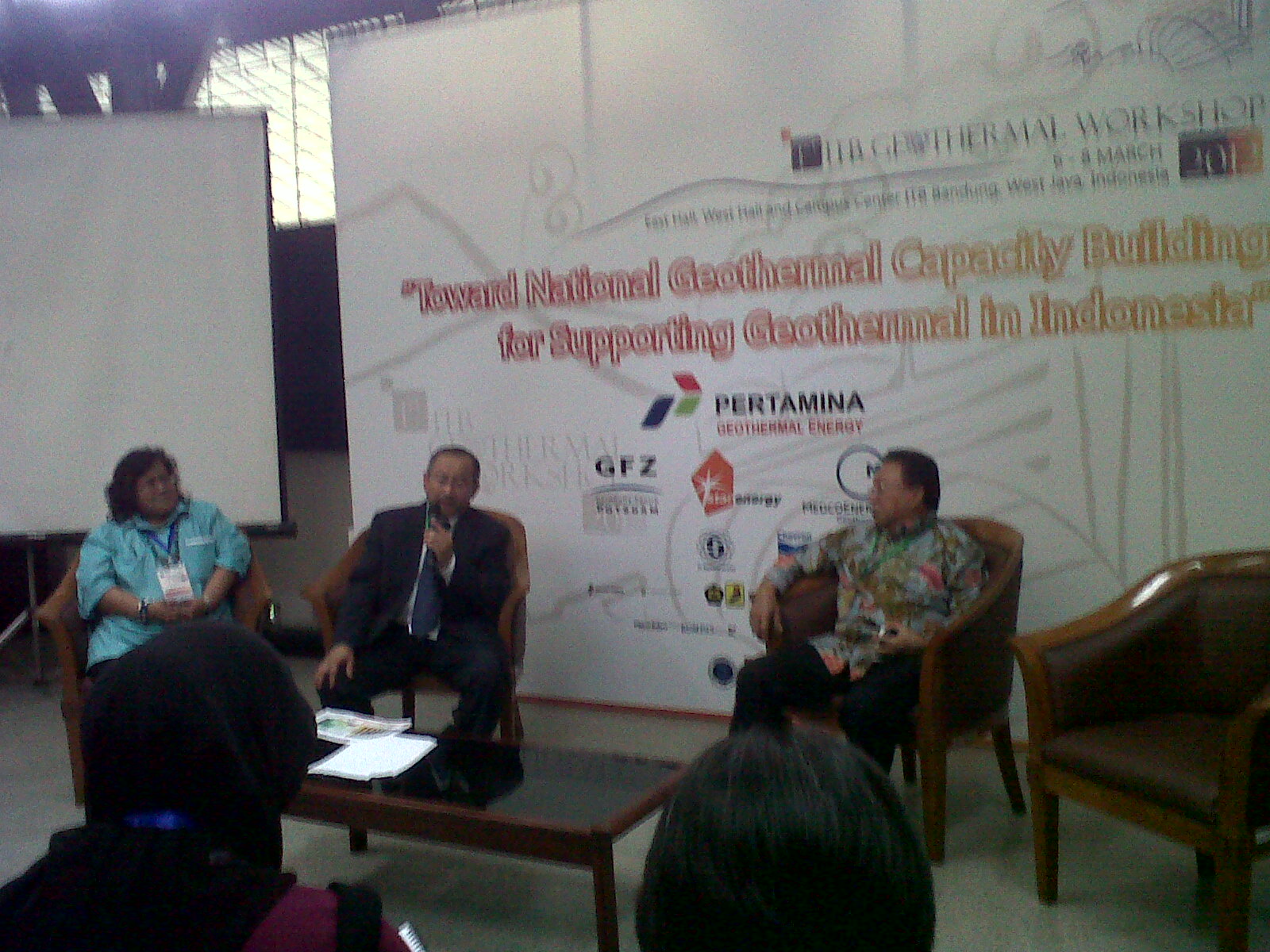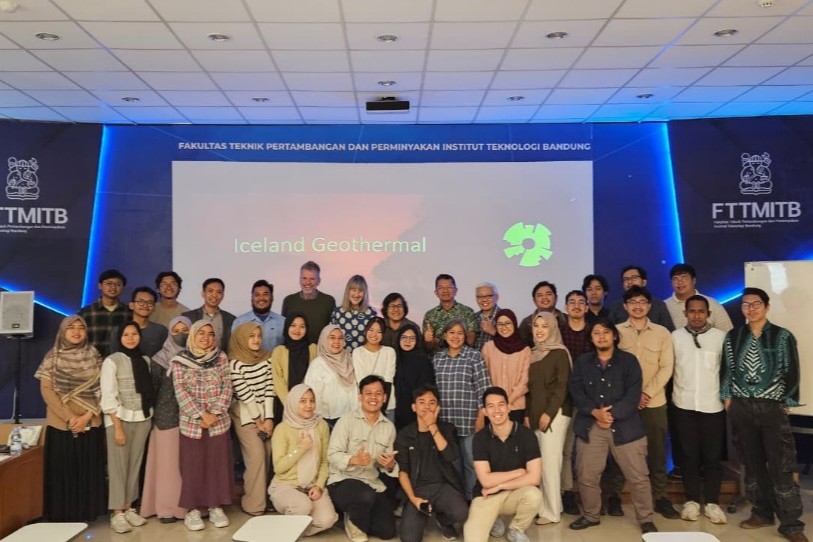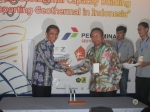ITB Geothermal Workshop: Investing in Human Resources Development for A Clean Energy Source
By Muhammad Hanif
Editor Muhammad Hanif

 During the press conference on ITB Geothermal Workshop program, Director of Pertamina Geothermal Energy Slamet Riyadi and Director of Star Energy Geothermal Sanusi Satar shared information regarding the development of geothermal industry in Indonesia. The event was held on Tuesday (06/03/12) with Ir. Nenny Miryani Saptadji, Ph.D, Manager of ITB Geothermal Engineering Graduate Program, as the MC. Slamet and Sanusi explained the challenges that the geothermal industry is facing, especially on the development of human resources. Geothermal industry in Indonesia is still inhibited by the retail price of the produced electricity.
During the press conference on ITB Geothermal Workshop program, Director of Pertamina Geothermal Energy Slamet Riyadi and Director of Star Energy Geothermal Sanusi Satar shared information regarding the development of geothermal industry in Indonesia. The event was held on Tuesday (06/03/12) with Ir. Nenny Miryani Saptadji, Ph.D, Manager of ITB Geothermal Engineering Graduate Program, as the MC. Slamet and Sanusi explained the challenges that the geothermal industry is facing, especially on the development of human resources. Geothermal industry in Indonesia is still inhibited by the retail price of the produced electricity.
“It is a cost-intensive industry, we hope the government can adjust the product’s price,” said Sanusi. Human resources is another concern. “We still haven’t met the required number of qualified men and women to fulfill Indonesia’s geothermal potentials,” said Sanusi Satar. He further explained, to maximize our geothermal potentials, at least 5 to 7 geoscientists are needed to explore the geothermal spots. “In Pertamina we only have 17 geoscientists to handle projects in Indonesia while we have 11 new projects ready to be explored and exploited,” Slamet Riyadi added. Sanusi expounded that in each of his operational area there are numerous exploitation spots. Kamojang, for example, has 80 spots, whle Wayang Windu has 40.
Promote the Development of Geothermal Human Resources
To meet the need of geothermal industries, ITB as the only institute that opens Geothermal Program in the world is improving its performance to increase the quantity as well as the quality of geothermal engineers. “Indonesia has an immense potential in geothermal and ITB is putting much effort to fulfill the need of competent professionals in geothermal by opening the Geothermal Graduate Program,” Nenny said. The program is supported by many, including the Ministry of Education and Culture as well as private corporations, through scholarships and training programs for the grad students.

.jpg)
.jpg)
.jpg)
.jpg)
.jpg)


